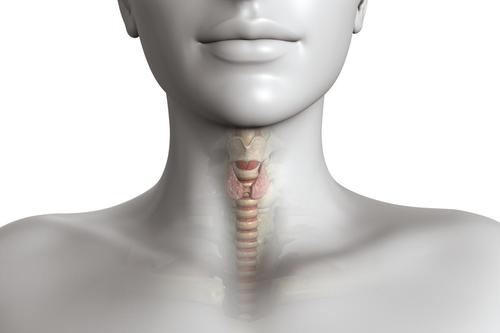All About Hypothyroidism-High TSH and the Reasons Behind the Disorder
TSH stands for Thyroid Stimulating Hormone. As the name implies, TSH stimulates the thyroid gland to produce T3 and T4 hormones which control metabolism in our body. Therefore, it would not be overemphasized to say that if the thyroid gland starts underperforming or overworking, either condition would be disastrous for our body.
High TSH is associated with hypothyroidism or an underperforming thyroid gland. Putting it into simple language, it means that levels of T3 and T4 are inadequately low in the blood and the brain must send a signal to produce more. As this is the duty of TSH, therefore, this leads to a raised TSH value.
Typically a value within the range 0.3-5.5 μIU/ml is considered as a normal TSH level and higher than 5.5 μIU/ml implies hypothyroidism.
What Causes a High Level of TSH?
1. Idiopathic
This is by far the most common cause leading to hypothyroidism, and the irony is that it signifies an unknown cause.
2. Iodine deficiency
Iodine is essential for making thyroid hormones in the body. Iodine deficiency is a major contributor to hypothyroidism worldwide.
3. Hashimoto's thyroiditis
This is an autoimmune disorder which causes an inflammation of the thyroid gland. This usually results in hypothyroidism and a goiter (enlarged thyroid). In this disease, the lymphocytes, or damaged immune cells, attack the thyroid gland. If you have a history of autoimmune diseases in your genes, then you are at a higher risk for this disorder.
4. Pregnancy
Pregnancy leads to an elevated demand for T3 and T4 hormones. The ideal TSH levels must be in the range of .1 to 3.0 μIU/ml for pregnant women. It is therefore during this time that some women are diagnosed to have subclinical or borderline hypothyroidism when their TSH levels are tested.
5. Radiation exposure
Any kind of exposure of the neck region to radiation can lead to hypothyroidism by causing localized damage to the thyroid gland. Common examples are cancers related to the maxillofacial region or larynx region.
6. Thyroid surgery
Many medical conditions, such as thyroid cancer or a goiter, require complete or partial removal of the thyroid gland. It is obvious that these patients will suffer from hypothyroidism and will need lifelong medication.
7. Chemotherapy
Unfortunately, if you have cancer in any part of your body and are on chemotherapy, you are at a high risk of developing hypothyroidism. This is because chemotherapy will cause overall damage to all the organs of the body.
Know Your Treatment Options

Home Treatments
The following remedies help in treating subclinical and borderline cases of hypothyroidism:
- Relieve stress
Research shows that hypothyroidism, a disease of a pituitary hormone, is related to stress in an outright manner. Cortisol, the hormone produced during stress, is supposed to suppress the pituitary function, which would automatically cut down on the normal TSH release as well. Techniques like yoga and meditation can help in relieving stress.
- Diet
You can eat iodine-rich foods, such as shrimp, iodized salt, and cranberries. However, some foods interfere with medications prescribed in the treatment of thyroidism, mostly soy-rich foods and high fibre foods, so you can choose to avoid them. Some foods you need to avoid are soy-milk, soy-protein, tofu, and avocados.
Medical treatments
This is "THE” answer for you if you have a report showing a high TSH level in your hands. Hormonal problems are very complicated and a doctor must be consulted under all circumstances. Listed are some common treatments.
- Synthetic thyroxine
The majority of hypothyroidism patients are prescribed medication containing levothyroxine, which is nothing but the T4 hormone. This tells the brain that there is a sufficient level of the required hormones in the bloodstream which in turn keeps TSH levels under control. However, the exact dosage required for you must be calculated and monitored by your doctor regularly.
- Surgery
Sometimes hypothyroidism is due to some type of tumor near the pituitary gland. The tumor exerts pressure and causes malfunctioning of this gland, which controls TSH release. However always remember that such surgeries are extremely dangerous and you must choose this option only if it is absolutely necessary.

Prevent High TSH Levels
- Avoid smoking
Smoking releases nicotine into the body, which causes hypothyroidism. Also, excessive smoking can lead to some form of maxillofacial cancer, and the radiation treatments to cure those do affect the thyroid gland in the neck region.
- Selenium supplementation
Selenium is very good for thyroid health and especially good for pregnant women.
- Avoid water with a high fluoride level
Research suggests that people who consume water rich in fluoride are at a higher risk of developing hypothyroidism when compared to their non-fluoride water drinking counterparts.
Summary
If you are regularly fatigued, constipated, or depressed for no reason at all, consider getting a thyroid checkup as this disease may have penetrated deeper than you think. Also, always consult a doctor for treatment to avoid the many complications related to hormonal imbalance diseases. A doctor will take into account a number of factors, such as your age, weight, and medical condition, before prescribing treatment. A small pill taken daily can save your body a lot of unnecessary trouble.
